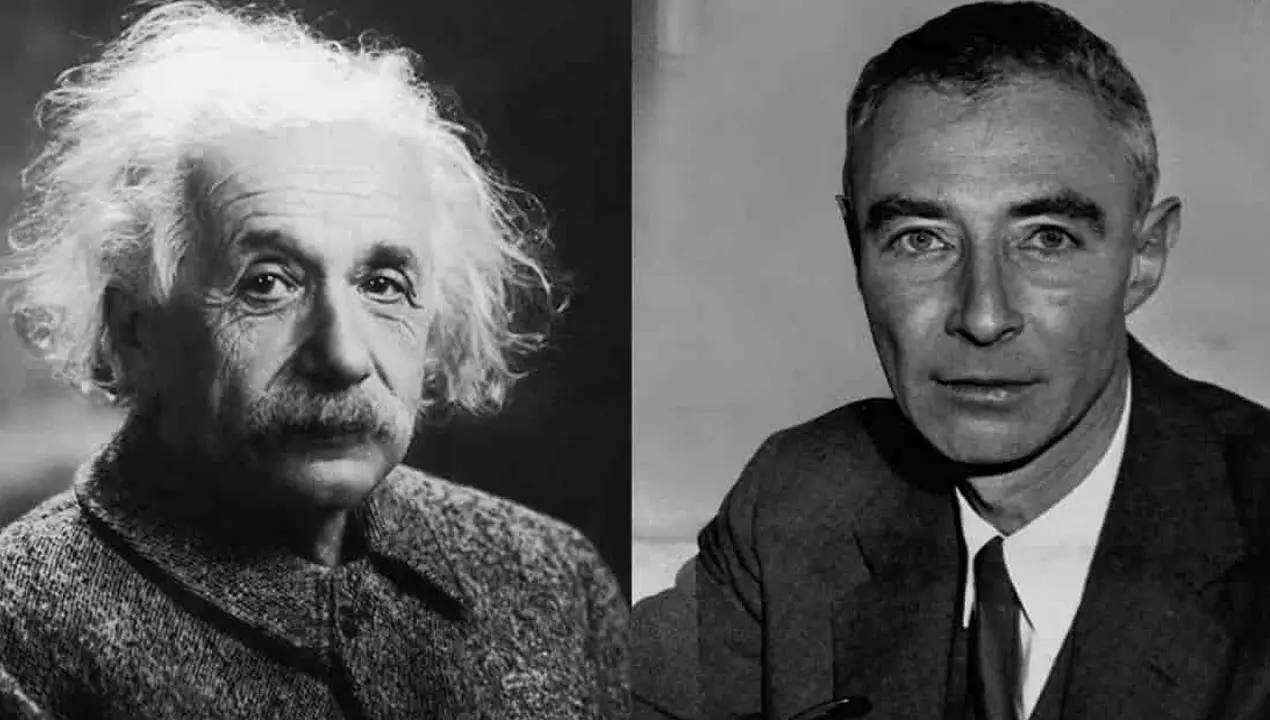Einstein and Oppenheimer Relationship: Albert Einstein and J. Robert Oppenheimer, two prominent figures in 20th-century physics, shared a captivating relationship during an era defined by scientific breakthroughs and the moral challenges of the atomic age. This article explores the dynamic interplay of these scientific minds amid the backdrop of World War II and the birth of the atomic bomb.
Albert Einstein: A Scientific Luminary
Early Life and Contributions
Albert Einstein, born on March 14, 1879, in Ulm, Germany, was a pioneering theoretical physicist. Widely regarded as one of the greatest scientists in history, Einstein revolutionized our understanding of space, time, and gravity with his groundbreaking theory of relativity. Beyond this, he made significant contributions to quantum mechanics, earning the Nobel Prize in Physics in 1921 for his explanation of the photoelectric effect.
Einstein’s Impact Beyond Science
In addition to his scientific achievements, Einstein played a key role in alerting the U.S. government to the potential development of atomic weapons by Nazi Germany. His iconic image and disheveled hair have become synonymous with scientific genius, and his legacy extends beyond physics, influencing philosophy and culture. Einstein became a U.S. citizen in 1940 and remained a prominent public figure until his death on April 18, 1955.
J. Robert Oppenheimer: Architect of the Atomic Bomb
Educational Background and Contributions
J. Robert Oppenheimer, born on April 22, 1904, in New York City, was an American theoretical physicist. His academic journey led him to excel in languages, science, and philosophy at Harvard University and later complete his Ph.D. in theoretical physics in Germany. Oppenheimer played a central role in the Manhattan Project, where he served as the scientific director and successfully oversaw the development and testing of the first atomic bomb in 1945.
Controversies and Legacy
After World War II, Oppenheimer faced controversy due to his political affiliations and outspoken views. In 1954, he experienced a security hearing, leading to the revocation of his security clearance. Despite these challenges, Oppenheimer continued to contribute to theoretical physics and served as the director of the Institute for Advanced Study in Princeton until his death on February 18, 1967.
The Einstein-Oppenheimer Relationship
Early Years and Acquaintance
Einstein and Oppenheimer first crossed paths in the United States when Einstein sought refuge from Nazi Germany in 1933. While both were affiliated with the Institute for Advanced Study in Princeton, their collaboration was not as intense as one might expect due to their differing areas of expertise.
Professional Collaboration and Differences
Despite working in close proximity, Einstein’s focus on the theory of relativity and Oppenheimer’s exploration of quantum mechanics led to distinct scientific differences. Their collaboration intensified during World War II, particularly with Einstein’s letter to President Roosevelt, indirectly contributing to the initiation of the Manhattan Project.
Moral Reflections and Legacy
The ethical implications of the atomic bomb weighed heavily on both minds. Einstein expressed regret for his role, while Oppenheimer’s famous words after witnessing the first successful test underscored the profound impact on his conscience. Despite differing views, they maintained mutual respect and admiration for each other’s intellectual prowess.
Beyond the Bomb: Shared Interests
The Einstein-Oppenheimer relationship extended beyond their wartime collaboration. Both shared a love for music and literature, with Einstein even gifting Oppenheimer a signed copy of his book “Relativity: The Special and General Theory.”
Conclusion
The Einstein-Oppenheimer relationship, marked by intellectual respect and occasional friction, serves as a reminder of the intricate human complexities behind scientific progress. Their story remains a fascinating chapter in the history of physics, highlighting the ethical considerations intertwined with scientific advancements.

